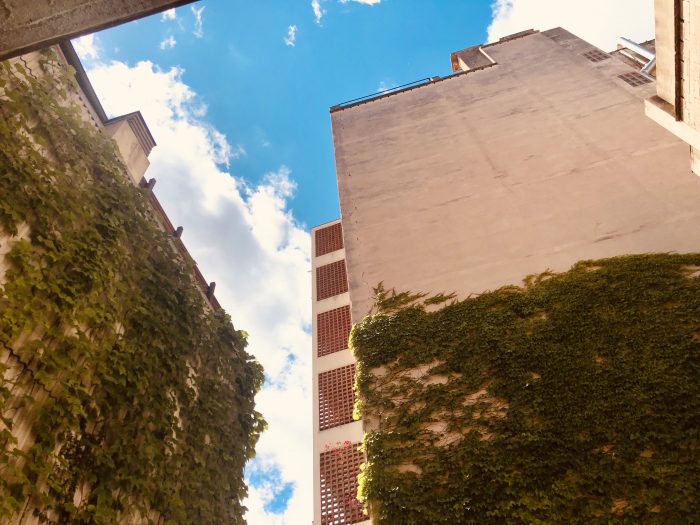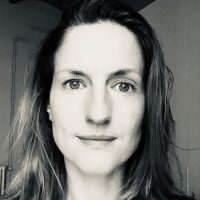There’s a game called ‘statues’ we used to play at primary school. The leader would stand at the wall with her back to the playground, while the rest of us would run to tag her, freezing whenever she turned to look. The aim was to reach her and take over. Something about this lockdown has reminded me of that sensation of never quite being the one to take over. Of standing perpetually frozen in a concrete playground, having been caught out. It’s as if where I was when COVID-19 hit is where I will always be.
This is where the regret comes from. And boy does it keep on resurfacing – in my sessions with clients; in my own head, too.
There’s a cliché about middle age: we turn forty and realise our fitness is in decline and we haven’t fulfilled a single dream. But I have clients in their early twenties who, since lockdown, have been drowning in regret. ‘I did the wrong degree,’ one of them has been bemoaning for several weeks now. ‘But it’s too late. I can’t afford to retrain. I couldn’t do it to my parents.’ Until the confinement, she didn’t regret her choice of studies, her choice of career. It’s not because she did not know, deep down, that she wasn’t on the right track. It’s that she didn’t allow herself to see it.
Another client has been lamenting she’s still single. There was a relationship she walked away from several years ago. It’s been haunting her: she dreams about it, obsesses over it. She has spent session after session questioning her need for independence and what drove her to be alone. We’ve been meeting for months, and only since COVID-19 has the narrative shifted to her regret at not sticking it out with her ex-boyfriend.
For me, the regret has been about city living. An overwhelming yearning for nature. A questioning of why we are living where we are living; why we need the city at all.
The fact is, COVID-19 has raised a mirror to our internal lives. And this is not to say the mirror was not there before – had we wanted to look. But it was easy not to look. We could race around in our external world of distractions – go away for a weekend, go on a work trip, run to the gym, grab a coffee, make small-talk with a barista, drink alone, drink with friends. We could scroll the gallery of shiny lives and political banter on Instagram, Twitter, Facebook. We might even have had job choices that flattered us. There was no question of pausing and changing direction: we had already invested enough in where we were going to make that impossible. If we had children, all the more so: there were schools to think about, making the responsible choices inevitable.
With COVID-19 and all distractions out the window, the kidding ourselves is gone. There is no half-way to happiness: we see this clearly now. We see, too, the erroneous choices we have made in the past, the choices we squandered. I’d hazard that if it’s not your worry for a loved one that keeps you up at 3am, or the overwhelming pressure to pay the bills when you’ve been made redundant, it will be this introspection that does it. The postmortem of our mistakes.
And it feels very much like judgement day: as if the choices we made until now are the ones we will be measured by.
But there is another way of looking at this. Existential anxiety is part and parcel of being human. Unbearable to admit to, it is something we constantly seek to dull. In fact, our adherence to the approval system we were raised in (do well at school, get a good job, get a mortgage, dress well, parade your life on Instagram, find a partner, have kids and so on) is, at least for most of us mere mortals, a means to keep this anxiety at bay. It takes a lot to reject the social expectations we were fed from birth; the values we always thought were ours but never quite seemed to fit.
In moments of extreme crisis (and by this I mean a crisis that throws all our assumptions of security, health and trust into question), we have a great opportunity to see where we were shackled and how we would prefer to be living. The ability to act on this understanding is, of course, a whole other thing. But first we need to find the patience and tolerance to sit with it (or lie with it in the middle of the night). When we begin to read our regrets in this way, we have the foundations for change.
Everything happens for a reason: I find myself saying this a lot when things don’t go to plan. I question myself even as I am saying it – it seems such a cliché and reminds me of the kind of blind religious faith I don’t subscribe to. Yet, I still somehow adhere to it as a philosophy. And though it would be heartless to argue that COVID-19 has any value to it, considering the suffering it has wreaked, this way it is making us question how we have been living is certainly a benefit. If we can endure the discomfort and find purpose within this struggle, then – yes – it is happening for a reason. Our own personal reason. We see clearly we don’t want to be alone. We see clearly we aren’t on the right career path and we need to find a way to retrain. We see clearly we don’t want to live in the city. These are the kinds of insights that give our regrets purpose.












Read 2 comments and reply